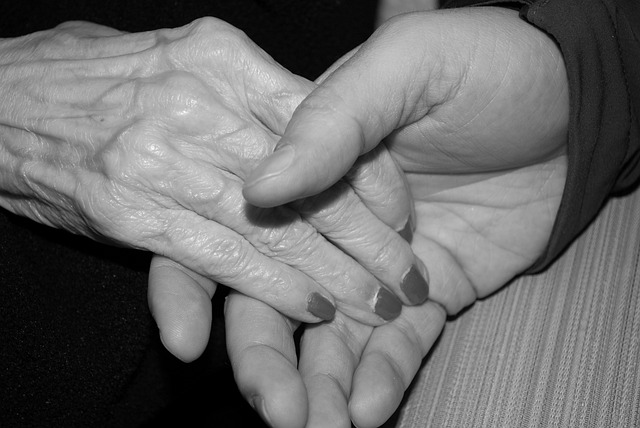The Power of Physical Activity for Mental Health in Seniors
Regular physical activity is not only vital for maintaining physical health but also plays a significant role in promoting mental well-being among seniors. Engaging in regular exercise has been shown to have multiple positive effects on cognitive function, mood, and emotional well-being. Various studies have demonstrated a clear link between physical activity and improved mental health outcomes in older adults.
Exercise has been found to enhance cognitive function by promoting the growth of new brain cells, improving memory, and increasing overall brain health. In addition to these cognitive benefits, physical activity has been proven to reduce symptoms of depression and anxiety in seniors. Regular exercise releases endorphins, which are known as the ‘feel-good’ hormones, leading to a boost in mood and a decrease in feelings of sadness and stress.
Furthermore, physical activity fosters social connections among seniors, helping combat loneliness and isolation. Engaging in group exercises or joining fitness classes offers opportunities for older adults to meet and interact with like-minded individuals, thus promoting a sense of belonging and social support. These social connections can have a significant impact on mental well-being, ensuring seniors maintain a positive outlook on life.
In conclusion, the power of physical activity for mental health in seniors should not be overlooked. Through regular exercise, older adults can enhance their cognitive function, reduce symptoms of depression and anxiety, foster social connections, and ultimately lead a happier and healthier life. Incorporating fitness into daily routines can provide a multitude of benefits for mental well-being, making it a crucial aspect of senior care.
Enhancing Cognitive Function through Regular Exercise
Regular exercise has been shown to have numerous benefits for older adults, and one area where it can have a significant impact is in enhancing cognitive function. Engaging in physical activity on a regular basis can help improve memory, attention, and overall cognitive performance in seniors. Research has demonstrated that exercise promotes the release of chemicals in the brain that support the growth of new neurons, particularly in areas of the brain associated with memory and learning.
Furthermore, exercise has been found to increase blood flow to the brain, which is crucial for delivering oxygen and nutrients needed for optimal cognitive function. This boost in blood flow can lead to improved executive functioning, such as better decision-making and problem-solving abilities. Regular physical activity also helps reduce the risk of cognitive decline and neurodegenerative diseases, such as Alzheimer’s disease, by promoting the formation of new connections between brain cells and protecting against age-related brain changes.
Boosting Self-Esteem and Confidence in Older Adults
Lack of self-esteem and confidence can significantly impact the overall well-being of older adults. However, regular physical activity can play a vital role in boosting their self-esteem and confidence levels. Engaging in exercises such as strength training, yoga, or even simple walks can help older adults feel more in control of their bodies and increase their sense of self-worth.
When older adults participate in physical activities, they often experience a sense of accomplishment and pride in their abilities. They can witness their own progress, whether it be increased strength, improved balance, or enhanced flexibility. These improvements translate into increased self-confidence, encouraging them to challenge themselves further and take on new physical activities. Through regular exercise, older adults can feel empowered, capable, and more confident in their own bodies and capabilities.
Reducing Stress and Anxiety through Fitness for Seniors
Senior adults often experience higher levels of stress and anxiety due to various factors, including health concerns, changes in lifestyle, and social isolation.

By participating in exercises such as walking, swimming, or yoga, seniors can experience a natural boost in their mental and emotional state. These activities not only distract from stressful thoughts but also encourage relaxation and mindfulness. Additionally, physical activity promotes better sleep, which in turn reduces anxiety levels and enhances overall quality of life. Regular fitness routines can serve as a healthy outlet for seniors to release pent-up emotions, resulting in a calmer and more peaceful state of mind.
The Role of Exercise in Preventing and Managing Depression
Depression is a common mental health disorder that affects a significant number of older adults. While there are various treatments available, one effective approach is regular exercise. Engaging in physical activity has been shown to play a crucial role in preventing and managing depression in seniors.
Exercise stimulates the production of endorphins, also known as “feel-good” chemicals, in the brain. These neurotransmitters are responsible for enhancing mood and reducing feelings of sadness and anxiety. Additionally, exercise helps regulate the balance of other important brain chemicals such as dopamine and serotonin, which are often imbalanced in individuals with depression. By increasing the levels of these neurotransmitters, exercise can help improve overall mental well-being and alleviate symptoms of depression in seniors, making it an essential component of a comprehensive treatment plan.
Fostering Social Connections and Combating Loneliness
As seniors age, they may face challenges in maintaining social connections and combating feelings of loneliness. However, regular physical activity can be a powerful tool in fostering social connections and providing opportunities for social engagement. Participating in group exercise classes, such as aerobics or dancing, not only helps seniors stay physically active but also provides a platform for building social connections with other participants. Engaging in physical activities with others can create a sense of camaraderie and support, leading to lasting friendships and a stronger sense of belonging within a community.
In addition to group exercise classes, seniors can also participate in walking or jogging clubs, sports teams, or outdoor activities to foster social connections. These activities not only provide opportunities for regular physical activity but also create an environment for seniors to engage with others who share similar interests. By joining such clubs or teams, older adults can experience the benefits of physical activity while simultaneously combating loneliness and enhancing their social well-being. Moreover, engaging in physical activities with others can provide a sense of motivation and accountability, making it easier for seniors to adopt and maintain a regular exercise routine.
• Participating in group exercise classes, such as aerobics or dancing, can foster social connections and provide opportunities for social engagement.
• Engaging in physical activities with others creates a sense of camaraderie and support, leading to lasting friendships and a stronger sense of belonging within a community.
• Walking or jogging clubs, sports teams, or outdoor activities can also foster social connections among seniors.
• Joining such clubs or teams allows older adults to engage with others who share similar interests while experiencing the benefits of physical activity.
• Engaging in physical activities with others provides motivation and accountability for seniors to maintain a regular exercise routine.
Improving Sleep Quality and Enhancing Overall Well-being
Getting a good night’s sleep is essential for overall well-being, especially for seniors. As we age, sleep patterns tend to change, and getting enough quality sleep becomes more challenging. However, regular physical activity can greatly improve sleep quality and help seniors feel more rested and rejuvenated. Exercise has been shown to regulate sleep patterns, promote deep sleep, and reduce sleep disturbances. By engaging in regular physical activity, seniors can enjoy the benefits of a good night’s sleep, such as improved mood, increased energy levels, and enhanced cognitive function.
In addition to improving sleep quality, regular exercise has numerous other benefits for seniors’ overall well-being. Physical activity helps to maintain a healthy weight, strengthen bones and muscles, and improve cardiovascular health. It also boosts the immune system, reduces the risk of chronic diseases, and enhances mental clarity and focus. Furthermore, exercise releases endorphins, which are natural mood-boosting chemicals in the brain. This can help seniors combat feelings of sadness or anxiety and promote a positive outlook on life. Incorporating physical activity into daily routines can significantly improve overall well-being and contribute to a higher quality of life for seniors.
Enhancing Brain Health and Reducing the Risk of Cognitive Decline
It is well-established that engaging in regular physical exercise can have a positive impact on brain health and reduce the risk of cognitive decline in older adults. Numerous studies have shown that exercise can enhance various aspects of cognitive function, including attention, memory, and processing speed. Additionally, physical activity has been found to promote the growth of new brain cells and improve the connectivity between different regions of the brain.
One way in which exercise can enhance brain health is by increasing the production of molecules that support the growth and survival of brain cells. When we engage in physical activity, the brain releases chemicals called neurotrophic factors, such as brain-derived neurotrophic factor (BDNF), which are important for the growth and maintenance of neurons. These molecules have been shown to enhance the formation of new connections between neurons, improve their ability to communicate with each other, and promote the survival of existing brain cells. By regularly participating in physical exercise, older adults can effectively support their brain health and potentially reduce the risk of cognitive decline in later life.
Promoting a Positive Body Image and Body Acceptance in Seniors
Maintaining a positive body image and promoting body acceptance is an important aspect of overall well-being for seniors. As we age, our bodies naturally go through changes, and it is crucial to embrace and accept these changes rather than letting negative thoughts and unrealistic expectations affect our self-perception.

To promote a positive body image and body acceptance, seniors should focus on self-care and self-love. This involves engaging in activities that make them feel good about themselves, such as wearing clothes that make them feel confident and comfortable, practicing good hygiene, and surrounding themselves with supportive and positive people. Additionally, seniors can make an effort to challenge negative thoughts and replace them with positive ones. Practicing gratitude and focusing on the things their bodies can do rather than solely on appearance can also help in promoting body acceptance and a positive self-image.
Strategies for Incorporating Fitness into Daily Life for Seniors
Incorporating fitness into daily life is essential for seniors to maintain their physical and mental well-being. However, it can be challenging for older adults to establish a routine that includes regular exercise. To overcome this hurdle, it is important to start small and gradually increase the intensity and duration of physical activity. Simple activities like walking, gardening, or even household chores can contribute to overall fitness. Seniors can also explore low-impact exercises such as swimming, Tai Chi, or yoga, which are gentle on the joints and provide numerous health benefits. Finding an enjoyable activity is key to staying motivated, so seniors should consider joining a fitness class or forming a walking group with like-minded individuals to engage in physical activity together.
It is important for seniors to prioritize their fitness goals and make them a part of their daily schedule. Setting realistic and achievable targets can help in staying committed and inspired. It is advisable to consult with a healthcare professional before starting any exercise regimen, particularly if there are underlying health conditions. Seeking guidance from a personal trainer or a fitness instructor experienced in working with older adults can also provide the necessary support and expertise. Additionally, utilizing technology can be beneficial in tracking progress and staying motivated. There are numerous smartphone apps and wearable devices available that can help seniors monitor their physical activity levels and set reminders for regular exercise. With dedication and perseverance, incorporating fitness into daily life can greatly enhance the overall well-being and longevity of seniors.
Why is physical activity important for mental health in seniors?
Regular physical activity has been shown to improve mental health in seniors by reducing symptoms of anxiety and depression, boosting mood, and enhancing overall well-being.
How does regular exercise enhance cognitive function in older adults?
Regular exercise has been found to enhance cognitive function in older adults by improving memory, attention, and problem-solving skills.

Can exercise boost self-esteem and confidence in older adults?
Yes, exercise can boost self-esteem and confidence in older adults by promoting a sense of accomplishment and mastery, improving physical appearance and body image, and providing a sense of social connection and support.
How does fitness help in reducing stress and anxiety among seniors?
Engaging in regular physical activity helps to reduce stress and anxiety in seniors by promoting the release of endorphins, improving mood, and providing a healthy outlet for emotional tension.
What role does exercise play in preventing and managing depression in seniors?
Exercise plays a significant role in preventing and managing depression in seniors by increasing the production of serotonin and other neurotransmitters that regulate mood, promoting social interaction, and providing a sense of purpose and achievement.
How does fitness foster social connections and combat loneliness among seniors?
Participating in group exercise classes or engaging in physical activities with others can foster social connections, provide opportunities for meaningful interactions, and combat loneliness in seniors.
Can exercise improve sleep quality and overall well-being in seniors?
Yes, exercise has been shown to improve sleep quality in seniors by promoting a regular sleep schedule, reducing sleep disturbances, and increasing the overall duration of sleep. Improved sleep can enhance overall well-being and daytime functioning.
How does exercise enhance brain health and reduce the risk of cognitive decline?
Regular exercise enhances brain health by increasing blood flow and oxygenation to the brain, promoting the growth of new neurons, and reducing the risk of cognitive decline and age-related brain disorders.
Does fitness promote a positive body image and body acceptance in seniors?
Engaging in regular physical activity can promote a positive body image and body acceptance in seniors by improving physical strength, flexibility, and mobility, and fostering a sense of self-worth based on overall health and functionality rather than appearance.
What are some strategies for incorporating fitness into daily life for seniors?
Some strategies for incorporating fitness into daily life for seniors include taking regular walks or engaging in low-impact exercises, joining fitness classes designed for older adults, incorporating strength training exercises, and setting achievable goals for physical activity.


